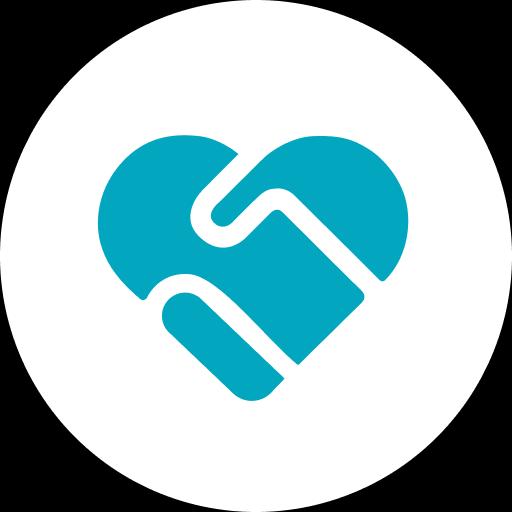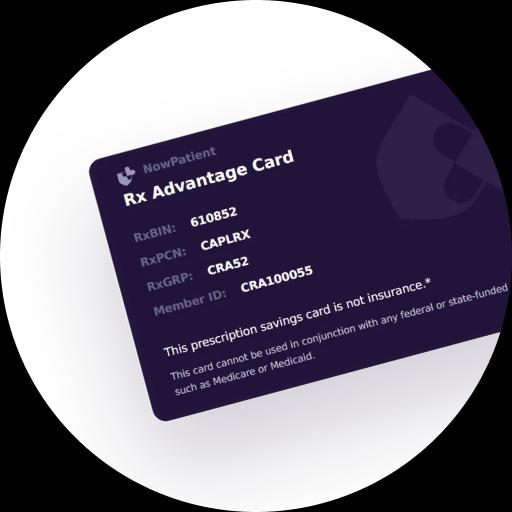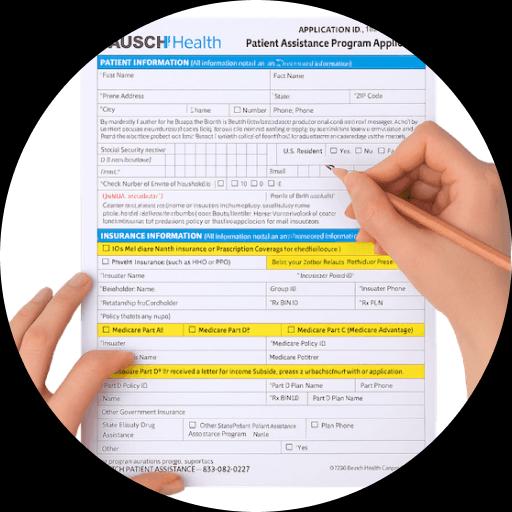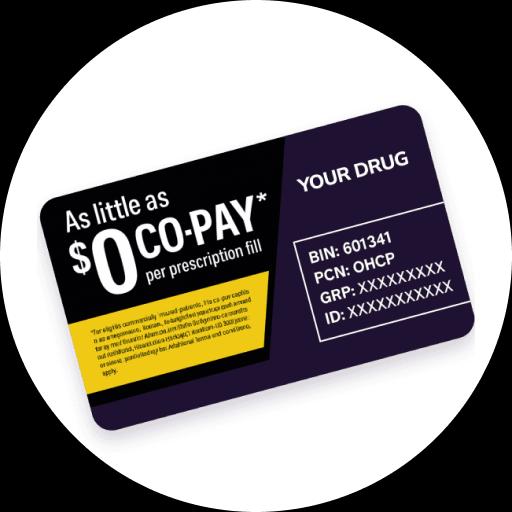Save on Imatinib with Coupons, Discounts & Savings Programs


Start Saving Today!
Lower the Cost of Your Imatinib Prescription
More great savings
View Related Brands
MEDICAL INFORMATION
Imatinib Key Facts
What dosages is Imatinib available in?
Imatinib is available as a 100 mg and 400 mg oral tablet.
What is Imatinib used for?
Imatinib is a tyrosine kinase inhibitor and is used to treat Philadelphia chromosome-positive chronic myeloid leukemia, ph+ acute lymphoblastic leukemia, myelodysplastic or myeloproliferative diseases, aggressive systemic mastocytosis, hypereosinophilic syndrome or chronic eosinophilic leukemia, dermatofibrosarcoma protuberans, and gastrointestinal stromal tumors.
How does Imatinib work?
Imatinib is a tyrosine kinase inhibitor (TKI). It blocks a certain protein in your body called tyrosine kinase. This helps stop cancer cells from growing and multiplying.
How do I take Imatinib?
Imatinib is typically dosed 400 mg or 600 mg by mouth once daily in adults, depending on the condition being treated. Children’s dose will be based on their height and weight. The daily dose is taken by mouth, either as a single dose or as 2 equally separated doses during the day. The maximum dose is 600 mg per day.
Is it safe for me to take Imatinib?
Imatinib is a safe and effective treatment when used for FDA licensed indications. However, like all medications, they may give you unwanted side effects. You should always discuss potential side effects with your physician to ensure the medication is suitable and right for you.
Imatinib Common Side Effects
Common side effects of Imatinib include:
- Fluid retention or swelling
- Nausea
- Muscle cramps
- Bone, muscle, or joint pain
- Diarrhea
- Rash or other skin reaction
- Fatigue or tiredness
- Headache
- Stomach pain
- Common cold
- Bleeding
- Vomiting
Imatinib Serious Side Effects
Serious side effects are rare with Imatinib. Contact your healthcare provider immediately if you experience any of the following.
- Infections: fever, chills
- Heart failure: shortness of breath, dry cough, irregular heartbeats, chest pain, weight gain
- Liver damage: yellowing of the skin or eyes, dark urine, tiredness
- Stomach bleed: blood in vomit, black or tarry stools, bright red blood mixed with stools
- Serious skin reactions: rash, hives, peeling skin, blisters
Effects of other drugs, drug classes and over-the-counter products on Imatinib
The following medications may interact with Imatinib:
- CYP3A4 inducers – May decrease Imatinib levels and effects
- CYP3A4 inhibitors – May increase Imatinib levels and effects
- Imatinib is an inhibitor of CYP3A4 and CYP2D6 which may increase the levels and effects of other drugs. Patients who require anticoagulation should receive low-molecular weight or standard heparin and not warfarin
Who makes Imatinib?
Various FDA-approved generic manufacturers
Is Imatinib safe in pregnancy?
Imatinib can cause harm to your unborn baby if taken while pregnant based on human and animal data. You should take a pregnancy test before starting treatment and use effective contraception during Imatinib treatment and for fourteen days after stopping Imatinib. Notify your physician if you are or think you may be pregnant.
What is the brand name for Imatinib?
Medical Disclaimer
NowPatient has taken all reasonable steps to ensure that all material is factually accurate, complete, and current. However, the knowledge and experience of a qualified healthcare professional should always be sought after instead of using the information on this page. Before taking any drug, you should always speak to your doctor or another qualified healthcare provider.
The information provided here about medications is subject to change and is not meant to include all uses, precautions, warnings, directions, drug interactions, allergic reactions, or negative effects. The absence of warnings or other information for a particular medication does not imply that the medication or medication combination is appropriate for all patients or for all possible purposes.
OUR CUSTOMERS VIEW
What Customers Love About Our Service
We want everyone to be happy and healthy, that’s what keeps us going. Read what some of them have to say about us.
Medicines Experts
Meet Our Medical Team
We are a broad skilled and passionate group of clinicians with experience of operating in health systems in the United Kingdom & United States. Providing excellent care and advice is at the heart of everything we do. You can read more about our medical team by visiting the medical team page or learn more about how we curate content by visiting our editorial process

























